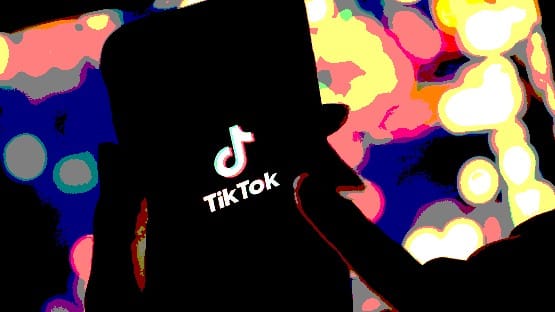
House passage this morning of legislation to ban TikTok in the United States if parent company ByteDance Ltd. does not sell the social media platform to a non-China based company is drawing approval and disapproval.
Protecting Americans From Foreign Adversary Controlled Applications Act passed the U.S. House on a vote of 352 to 65.
Senate Select Committee on Intelligence Chairman Mark R. Warner of Virginia and Vice Chairman Marco Rubio of Florida have raised concerns for more than a year about the social media platform’s impact on national security.
“We are united in our concern about the national security threat posed by TikTok — a platform with enormous power to influence and divide Americans whose parent company ByteDance remains legally required to do the bidding of the Chinese Communist Party. We were encouraged by today’s strong bipartisan vote in the House of Representatives and look forward to working together to get this bill passed through the Senate and signed into law,” Warner and Rubio said.
U.S. Rep. Abigail Spanberger of Virginia is a former intelligence officer and a member of the U.S. House Intelligence Committee. She said she has “long been aware of the national security threats posed by ByteDance’s ownership of TikTok and the risks to American users.”
“The U.S. intelligence community has consistently warned that TikTok is a tool within control of the Chinese government — and the Chinese Communist Party is capable of using the app to undermine democratic elections, weaponize propaganda, and stifle free speech across the globe,” Spanberger said.
Spanberger said TikTok’s parent company is based in China and therefore required to comply with surveillance demands from the Chinese Communist Party. Chinese owned companies must comply with requests to turn over user data.
“TikTok’s ability to be exploited by the CCP’s influence and espionage campaigns is a serious threat,” she said.
Spanberger clarified that the current legislation under consideration “is not an outright ban. If TikTok is going to be on the phones of Americans, then Congress must work to remove the influence of the Chinese Communist Party from the app — as this bill does through a forced divestiture. As lawmakers, we have a responsibility to protect the data of the American people and keep our country safe online.”
Executive Director of The National Cybersecurity Alliance Lisa Plaggemier said that TikTok presents “significant cybersecurity concerns” for the U.S.
“Beyond the immediate privacy implications, there are fears that TikTok could be leveraged as a tool for misinformation campaigns and data collection by foreign actors, particularly the Chinese government. The scale of TikTok’s user engagement, combined with China’s track record of aggressive cyber activities, raises the specter of sophisticated cyber threats targeting American users, including surveillance, data breaches, and manipulation of online discourse,” Plaggemier said.
TikTok’s threat is amplified by its popularity among American adults and children. Personal information could be compromised by its popularity, and disinformation campaigns could spread rapidly.
“The platform’s interactive nature and extensive reach make it an attractive target for malicious actors seeking to undermine national security or advance foreign interests. As such, policymakers face the critical task of balancing the benefits of information sharing and social connectivity with the imperative to protect citizens from cyber vulnerabilities inherent in platforms like TikTok. Continued investment in cybersecurity infrastructure and regulations is essential to mitigate these risks and uphold the integrity of digital ecosystems in an increasingly interconnected world.”
James Mawhinney, CEO of Media.com, disagrees, and stresses the dangers of all social media platforms.
“A ban on the platform could disrupt the dissemination of false or misleading information to its vast user base, potentially mitigating the harmful effects of viral misinformation campaigns. However, it’s crucial to recognize that the issues of disinformation and online manipulation are not confined to TikTok alone. Other platforms, including Facebook, Twitter and YouTube, have grappled with similar challenges, highlighting the need for comprehensive approaches to combatting misinformation across the digital landscape.”
Mawhinney said a national ban on TikTok “could have ripple effects across the broader social media ecosystem. With TikTok’s absence, users may flock to alternative platforms in search of similar content experiences, potentially amplifying the user base of competing apps. This influx of users could reshape the dynamics of the social media landscape, influencing trends in content creation, user engagement and platform competition. Additionally, the ban could prompt other social media companies to reevaluate their own data security practices and ties to foreign entities, as scrutiny over tech regulation intensifies.”










